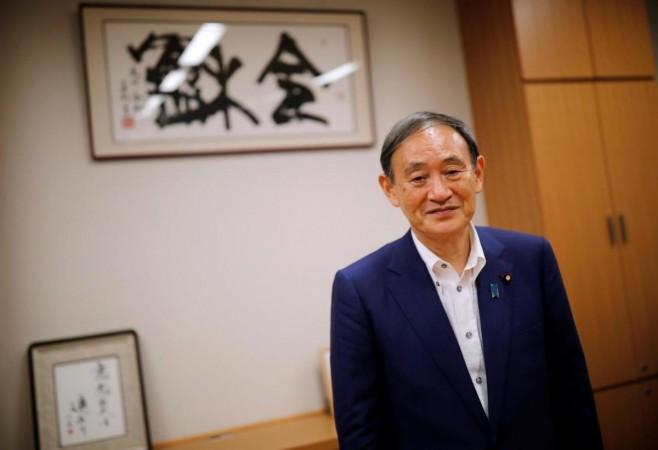
Japan's top government spokesman, Yoshihide Suga, has won the backing of the largest faction of the ruling party to become its next leader, public broadcaster NHK reported on Tuesday, making him a strong front-runner to become the next premier.
Japan's chief cabinet secretary and a long-time lieutenant of outgoing Prime Minister Shinzo Abe, Suga is widely expected to stay the policy course set out by Abe, including the "Abenomics" strategy aimed at reviving the economy and keeping it afloat amid the COVID-19 pandemic.
Suga has not publicly announced his candidacy for leader of the Liberal Democratic Party (LDP) but has indicated privately that he intends to run, a source told Reuters. [nL4N2FX1CN] Media reported he would formally announce his intention to run on Wednesday.
The party's leader will almost certainly become prime minister because of its majority in the lower house of parliament. The new leader will replace Abe, who abruptly announced on Friday he was stepping down for health reasons.
In a meeting on Tuesday to decide on the format of the election, LDP executives agreed to a simplified vote, by party MPs from both chambers of parliament and heads of local chapters, party Secretary-General Toshihiro Nikai said.
The proposal to exclude votes by rank-and-file members favours Suga, who has now reportedly locked in support from the party's biggest factions. But a final decision, to be made at a general assembly on Tuesday, could be delayed due to opposition from many party members.
"We must elect a new leader as soon as possible to avoid creating a political vacuum," Nikai told reporters. "There was no objection to my view at the meeting."
PUSH FOR WIDER VOTE

On Monday, however, younger LDP legislators met with Nikai to present a demand from more than 140 MPs and about 400 local party lawmakers for a full-scale vote. Several local chapters including Osaka have also demanded the same.
"To select the new leader, we must have a party presidential election in a form that listens to a wide range of votes," one of the MPs said. Shigeru Ishiba, a main rival for the race, echoed those views, repeating on Tuesday that he was against a limited vote.
"I think that both for democracy and for the party, this is something that should not be," the former defence minister said on TV Asahi. Ishiba is the most popular with voters among the likely candidates but lacks strong backing in the party hierarchy.
The LDP is expected to hold its leadership vote on Sept. 14. Financial markets also favour and appear to have factored in a win by Suga.
"He is considered to be a very effective policy leader within the party and bureaucracy ... and was key to Abe's successful tenure," said John Vail, chief global strategist at Nikko Asset Management.
"Suga's experience with the virus situation, including his appropriate push-back on complete shutdowns, is key, as this is Japan's greatest concern right now," he added.
Another contender for the post is Fumio Kishida, a former foreign minister. Current Foreign Minister Toshimitsu Motegi and Defence Minister Taro Kono both said on Tuesday they had not yet decided whether to run.
The reported backing of the LDP's biggest Hosoda faction for Suga follows media reports of support from the powerful faction led by Deputy Prime Minister Taro Aso. LDP heavyweight Nikai is also supporting Suga.








